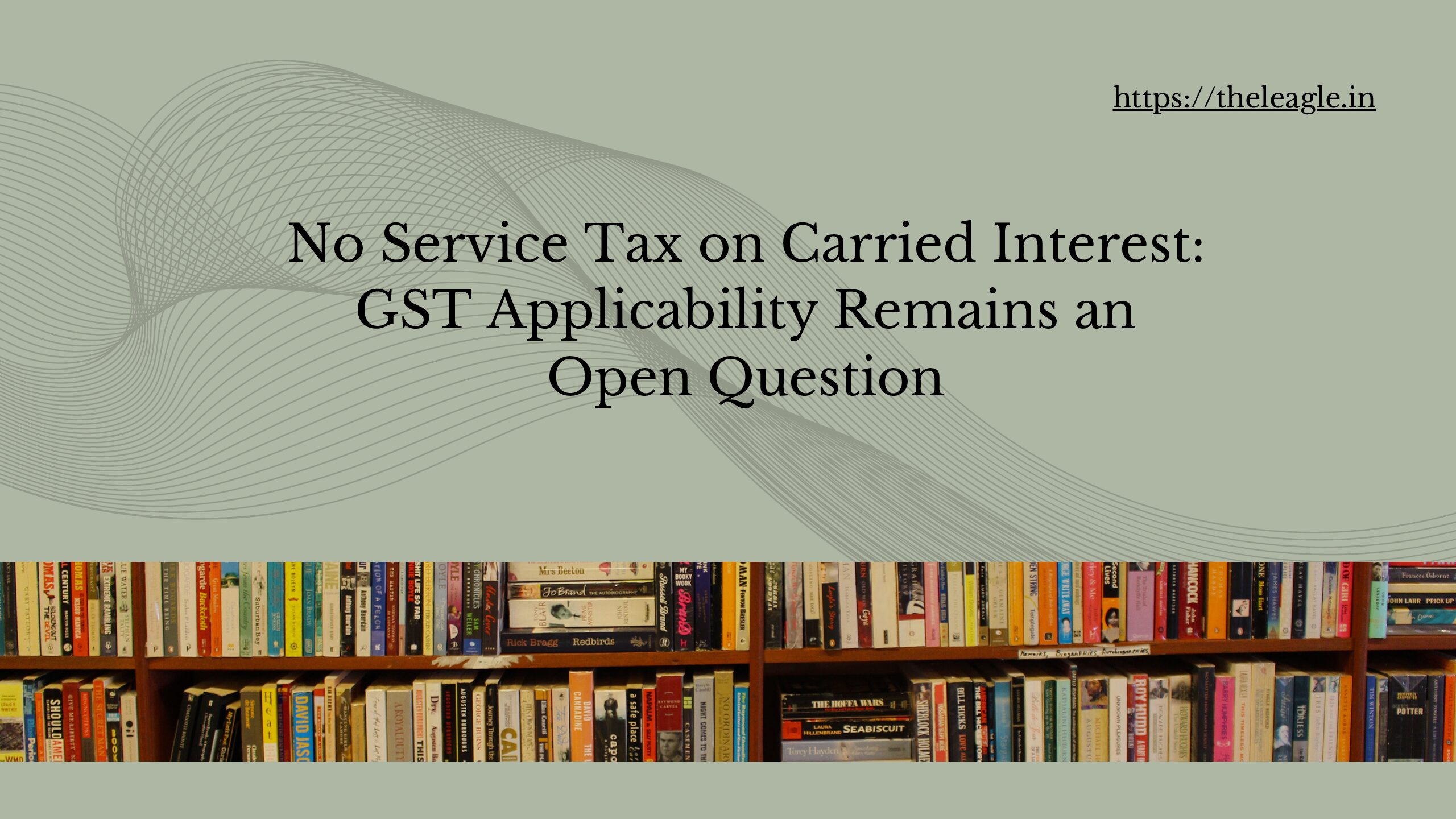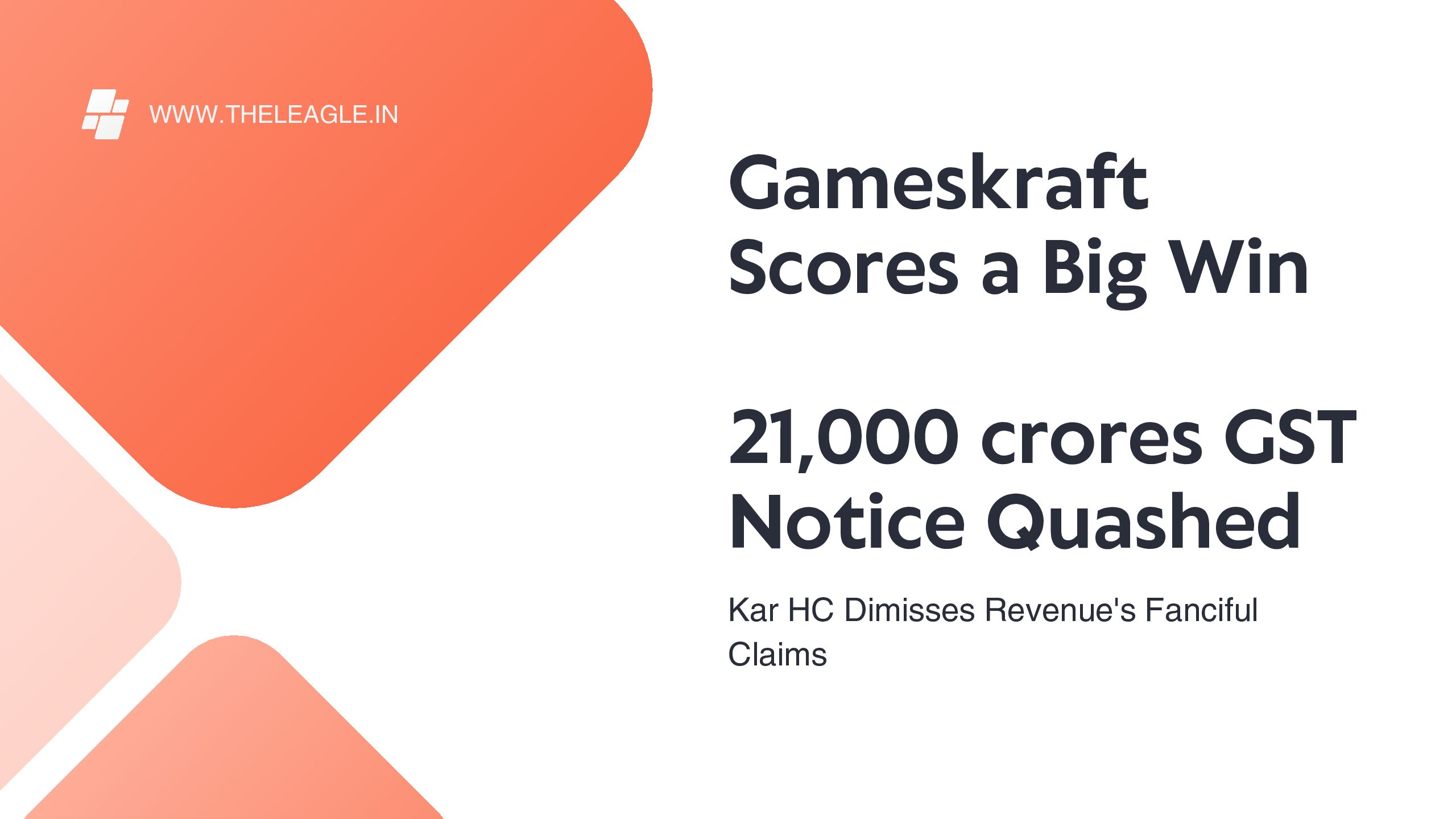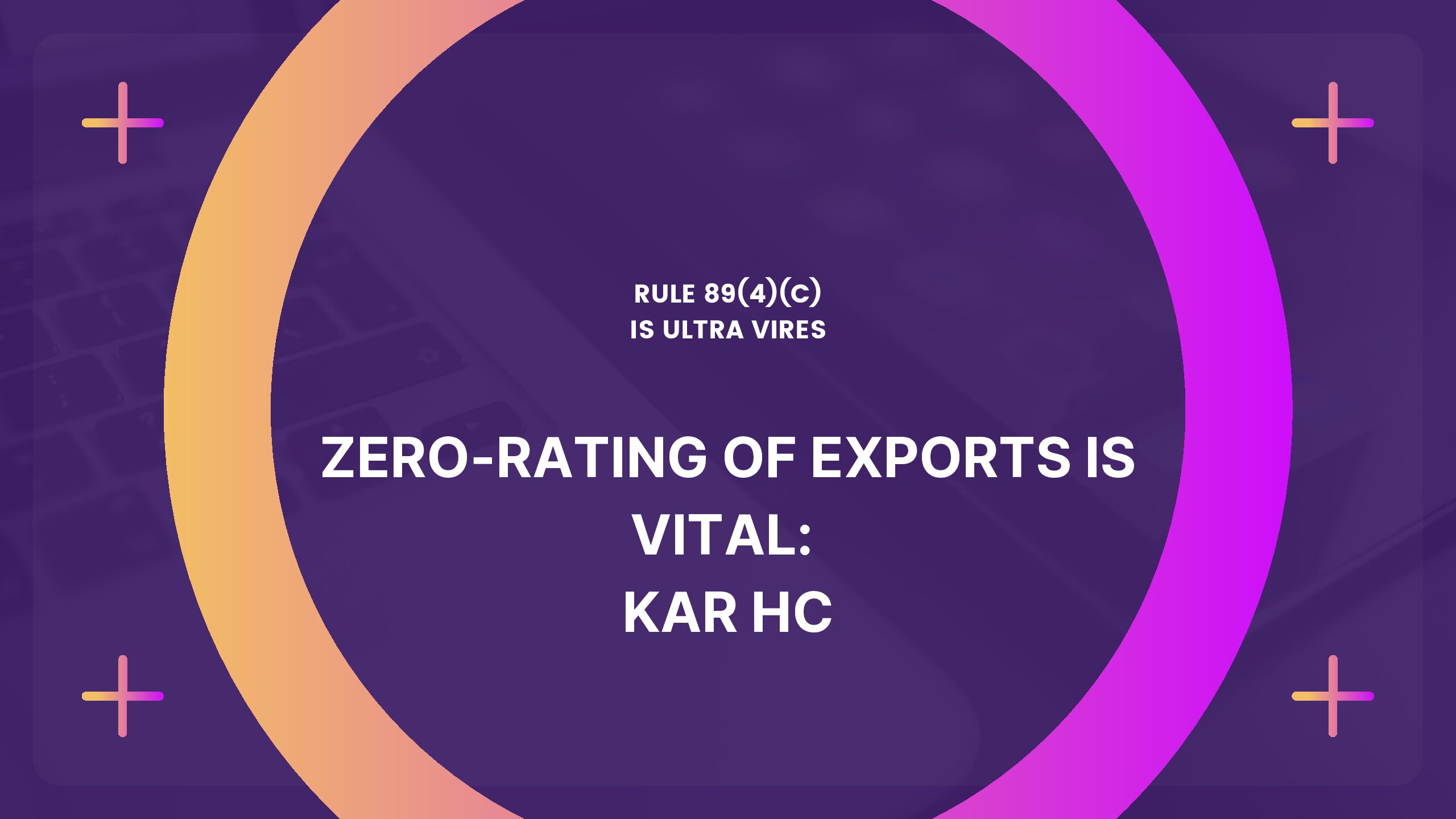Introduction
In April 2023, the Board of Flipkart Private Limited (‘FPS’), Singapore decided to pay a one-time voluntary compensation – 43.67 US dollars per stock option – to all the option grantees of its Employee Stock Options (‘ESOPs’). FPS paid the compensation because the value of its ESOPs had reduced after divestment of its stake in PhonePe, a digital payments company. Under the Flipkart Stock Option Scheme of 2012, FPS was under no obligation to compensate option grantees for loss in the value of its ESOPs. Nor did the option grantees have a right to compensation for FPS’s failure to protect the value of its ESOPs. However, FPS exercised its discretion and decided to compensate all the option grantees on a pro rata basis.
The question from a tax standpoint was: whether the option grantees are liable to pay tax on the one-time voluntary compensation paid by FPS? In the absence of a clear charging provision under the Income Tax Act, 1961 (‘IT Act, 1961) vis-à-vis such a compensation, three High Courts have arrived at two different answers. The Delhi High Court in Sanjay Baweja v Deputy Commissioner of Income Tax, TDS Circle, 77(1), Delhi & Anrand the Karnataka High Court in Manjeet Singh Chawla v Deputy Commissioner of TDS Ward-(1)(2), Bangalore have answered in favor of the option grantees, while the Madras High Court in Nishithkumar Mukeshkumar Mehta v Deputy Commissioner of Income Tax, TDS Circle 2(1), has held in favor of the Income Tax Department. In all three cases, the options had vested in favor of the option grantees, but they had not exercised the options on the date of receiving the compensation. A fact which is crucial to understand all three decisions.
There were two possible ways the Income Tax Department tried to shoehorn the compensation as income under the IT Act, 1961: first, by classifying the compensation as a perquisite under Section 17(2)(vi) of the IT Act, 1961; second, by categorizing the compensation as capital gains under Section 45 of the IT Act, 1961. This article suggests that – contrary to the Income Tax Department’s claims – the compensation paid by FPS is not taxable either as a perquisite or as capital gains under existing provisions of the IT Act, 1961.
The two arguments against levy of income tax on the compensation are:
first, Section 17(2)(vi) of the IT Act, 1961 only envisages the difference in exercise price and fair market value of the options as a taxable perquisite. A one-time voluntary compensation paid to compensate for loss in value of ESOPs is not within the purview of Section 17(2)(vi).
second, while the one-time compensation paid by FPS is appropriately categorized as a capital receipt, in the absence of transfer of the underlying capital asset – stocks- it cannot be considered as capital gains under the IT Act, 1961. And even if one assumes that the compensation is capital gains, in the absence of a corresponding computation provision for such payments, the attempt to levy tax on such a compensation should fail.
Scope of Perquisite under Section 17(2)(vi)
Section 17(2)(vi) of the Income Tax Act, 1961 (‘IT Act, 1961’) defines ‘perquisite’ to include the value of any specified security or sweat equity shares allotted or transferred, directly or indirectly, by the employer, or former employer, free of cost or at a concessional rate to the assessee. Explanation (c) to the above sub-clause adds that:
the value of any specified security or sweat equity shares shall be the fair market value of the specified security or sweat equity shares, as the case may be, on the date on which the option is exercised by the assessee as reduced by the amount actually paid by, or recovered from, the assessee in respect of such security or shares;
Section 17(2)(vi) read with Explanation (c) makes ESOPs taxable in the hands of an assessee as a perquisite. And difference in the fair market value of ESOPs and the cost paid by the assessee for ESOPs is treated as a perquisite on which income tax is payable. But the difference between two prices is only relevant if the option grantee exercises the option because the difference is calculated in reference to the ‘date on which the option is exercised by the assessee.’ One can then plausibly argue that it is the exercise of stock options that triggers an option grantee’s income tax liability under Section 17(2)(vi).
The Madras High Court though held that the compensation received by an option grantee from FPS was taxable under Section 17(2)(vi) since the former ‘continues to retain all the ESOPs even after the receipt of compensation’. This conclusion has no basis in Section 17(2)(vi) since retention or otherwise of vested ESOPs is irrelevant to their taxability. It is the exercise of options that is material in determining the tax liability. The Madras High Court added another problematic observation to its above conclusion, i.e., computation of tax payable on the compensation. Section 17(2)(vi) does not provide for a computation mechanism for a voluntary compensation paid in respect of ESOPs. In this respect, the Madras High Court created its own computation mechanism by observing that:
If payments had been made by the petitioner in relation to the ESOPs, it would have been necessary to deduct the value thereof to arrive at the value of the perquisite. Since the petitioner did not make any payment towards the ESOPs and continues to retain all the ESOPs even after the receipt of compensation, the entire receipt qualifies as the perquisite and becomes liable to be taxed under the head “salaries”.
Again, there is nothing in Section 17(2)(vi) that supports the above observation. Section 17(2)(vi) does envisage an option grantee receiving ESOPs free of cost. And in that case, the import of Explanation(c) would be that since ‘the amount actually paid’ by the option grantee is nil, the fair market value of ESOP would be computed as the taxable perquisite, without any deduction of cost. The foundational condition of exercise of options though must still be satisfied. But the Madras High Court overlooked the condition of exercise of options. Overall, the Madras High Court’s observations on taxability and computation of tax on the compensation, via a liberal reading of Section 17(2)(vi), are suspect.
On the other hand, by adopting a comparatively more strict and reasonable interpretation of Section 17(2)(vi), the Delhi High Court noted that ‘a literal understanding’ of the provision would reveal that the value of specified securities or sweat equity shares is dependent on exercise of options. And that for an income to be included as a ‘perquisite’ under Section 17(2)(vi), it is essential that the option grantee exercises the options. In the absence of exercise of options, the benefits derived in the form of a one-time voluntary compensation were not taxable as a perquisite under Section 17(2)(vi). The Karnataka High Court in a similar vein added since the assessee had not exercised the stock options the voluntary compensation paid by FPS was not taxable under Section 17(2)(vi) a perquisite. The Karnataka High Court stated that in the impugned scenario ‘a computational impossibility’ arises since taxability under Section 17(2)(vi) only arises when the option grantee exercises the option.
Charge and Computation of Capital Gains
Section 45 of the IT Act, 1961 states that any profits or gains arising from transfer of a capital asset shall be chargeable to income tax under the head “capital gains”. To levy a charge of tax under this provision, there must be transfer of a capital asset from which a profit or gain is made by the asssesse. None of the conditions specified in Section 45 were satisfied in the impugned scenario. The arguments against equating the one-time voluntary compensation to capital gains are manifold.
To begin with, the option grantees stated that since they had not exercised their stock options at the time of receipt of compensation, there was no transfer of the underlying capital asset, i.e. the stocks. An essential ingredient of Section 45 was not fulfilled and thus the assertion that the compensation amounted to capital gains must fail.
Another reason for not considering the compensation as capital gains was that in the absence of exercise of stock options, the option grantees had paid no cost for acquiring them. The cost of acquisition, essential to compute capital gains, could not be determined. Section 48 of the IT Act, 1961 contains details on how to compute income chargeable to tax under the head of capital gains. But, Section 48 of the IT Act, 1961 does not specify how to compute capital gains tax for a voluntary compensation received by an option grantee; specifically, when the option grantee has not exercised options at the time of receiving a voluntary compensation in relation to ESOPs.
Even if one assumes there was transfer of a capital asset within the meaning of Section 45 of the IT Act, 1961 the lack of a corresponding computation mechanism would mean that the charge of tax must fail. The Karnataka High Court endorsed a well-established dictum of law on this issue, i.e., a charging provision and computation provision constitute an integrated code. The Karnataka High Court relied on Mathuram Aggarwal v State of Madhya Pradesh, where the Supreme Court has held that if any of the three elements: the subject of tax, the person liable to pay tax and rate of tax are ambiguous, there is no tax under the law. The Karnataka High Court’s reasoning that in the absence of a computation mechanism – for the compensation received by the option grantees – the charge of tax fails is based on a correct reading of the tax statute and aligns with the Supreme Court’s unchallenged view.
Finally, the option grantees argued that the compensation is a capital receipt, and the levy of income tax must fail. The Income Tax Department tried to argue that the compensation is a revenue receipt on the ground that FPS intended to deduct tax at source implying that the compensation is taxable under the IT Act, 1961. The Delhi High Court correctly negatived this assertion by the Income Tax Department and observed that:
It is pertinent to note that the manner or nature of payment, as comprehensible by the deductor, would not determine the taxability of such transaction. It is the quality of payment that determines its character and not the mode of payment. Unless the charging Section of the Act elucidates any monetary receipt as chargeable to tax, the Revenue cannot proceed to charge such receipt as revenue receipt and that too on the basis of the manner or nature of payment, as comprehensible by the deductor.
The Delhi High Court added that the compensation paid by FPS to the option grantees was a one-time voluntary payment not linked to employment or business of the latter, and neither did it arise from a statutory or contractual obligation and correctly categorized it as a capital receipt. The Delhi High Court cited various precedents to emphaise on the voluntary nature of the payment to conclude that the compensation paid by FPS was a capital receipt. The Delhi High Court’s conclusion on the compensation being a capital receipt was in the context of Section 17(2)(vi). However, the Delhi High Court’s above observation was partially applicable to rebut the argument of capital gains as well. To put it succinctly, a capital receipt is subject to tax only if there is an express charging provision under the relevant income tax statute, there is a corresponding computation provision, and the capital receipt is included in the definition of income. Else, a capital receipt remains outside the purview of an income tax statute. In the impugned case, the lack of a specific computation provision for such compensation establishes that it is a capital receipt that is not charged to tax under the IT Act, 1961. The Karnataka High Court went a step ahead and pointedly held that the compensation was a capital receipt not chargeable to income tax under Section 45. And that a capital receipt which cannot be taxed under Section 45, cannot be taxed under any other head of income. And in stating so, the Karnataka High Court refused to categorize the compensation under the head of ‘salaries’, ‘capital gains’ or ‘income from other sources.’
Conclusion
Overall, the Delhi and Karnataka High Court’s approach to the impugned issue of taxability of a one-time compensation seems to be on much sounder footing. The latter copiously cited the former judgment and endorsed it unqualifiedly while adding its own similar interpretation. The reason that the Madras High Court’s judgment is unpersuasive is because it at odds with some of the fundamental interpretive tools used in tax law. For example, the position under tax law is clear and unimpeached: an income cannot be subjected to tax in the absence of an express charging provision. The charge of tax also fails in the absence of a corresponding computation mechanism. The former only establishes that the tax is payable, quantifying the amount payable via a computation provision is equally vital. Absence of either proves fatal to the charge. The Madras High Court by holding that the one-time voluntary compensation paid by FPS is taxable under Section 17(2)(vi), and that the entire sum received as compensation is taxable as perquisite, contradicts both the above well-accepted positions in tax law. It is not the remit of courts to interpret charging provisions liberally or prescribe computation mechanisms. The Madras High Court’s interpretive approach was an unwelcome intervention in adjudication of tax disputes. The Delhi and Karnataka High Court judgments – based on strict interpretation and defensible reasoning – hopefully will be a persuasive source for any future disputes that may arise on tax disputes of similar nature.




